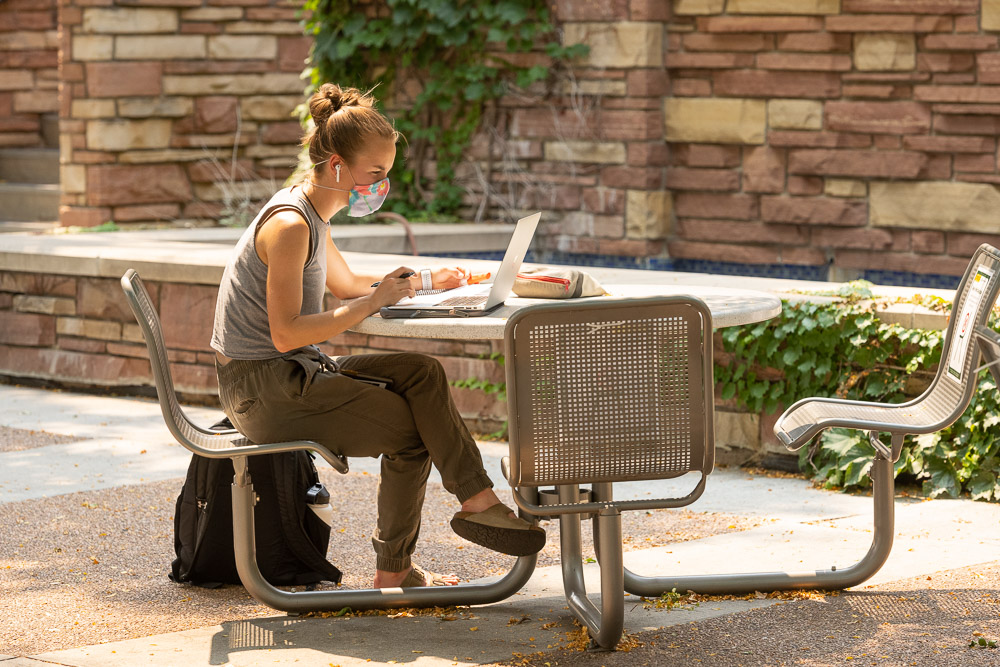
A CSU student wearing a face covering on the Plaza. Photo by John Eisele/CSU Photos
The vast majority of Colorado State University students continue to be motivated to practice public health behaviors so they don’t spread COVID-19 – and in some instances, even more so than when they started the semester, according to a recent campus survey.
Across the board, students are more motivated after six weeks of classes – when compared to the summer – to wear face coverings, practice physical distancing, wash their hands, keep gatherings small and stay at home when they’re sick.
The results come from a follow-up survey conducted by CSU’s Social Norming Task Force, a committee of more than two dozen faculty, staff and students charged with correcting misperceptions students may have involving public health behaviors.
According to the October survey, 91.3% of students completely or somewhat agreed that they were motivated to practice health behaviors to ensure the health of the CSU community – a data point that has remained steady since July.
Task force leadership was pleased with the results, commending the continued commitment of students in practicing health behaviors.
“The percentages are holding from summer to mid-semester,” said Jody Donovan, assistant vice president for student affairs and dean of students. “Students are continuing to practice health behaviors. To see that holding pattern is really significant.”
Student social norming survey highlights
The CSU Student Social Norming Mid-Semester Assessment was administered Oct. 5-19 to a random sample of 5,000 CSU students. A total of 489 students responded for a 9.8% response rate.
October survey responses are bolded, and July survey responses are un-bolded.
96.1%/October (95.1%/July) of students completely or mostly agree that “staying at home when you are sick can reduce the spread of COVID-19.”
86.8% (87.4%) of students completely or mostly agree that “hand washing can reduce the spread of COVID-19.”
82.2% (76.4%) of students completely or mostly agree that “physical distancing can reduce the spread of COVID-19.”
80.5% (72%) of students completely or mostly agree that “wearing a face covering can reduce the spread of COVID-19.”
74.4% (71.8%) of students completely or mostly agree that “using sanitizer can reduce the spread of COVID-19.”
81.7% (70.1%) of students completely or mostly agree that “avoiding gatherings can reduce the spread of COVID-19.”
Social norms marketing
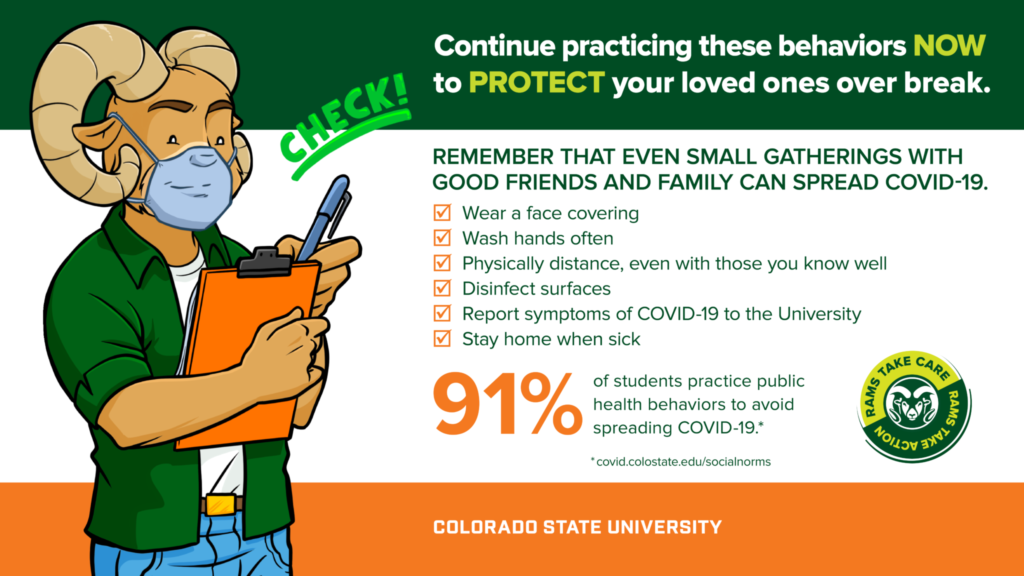
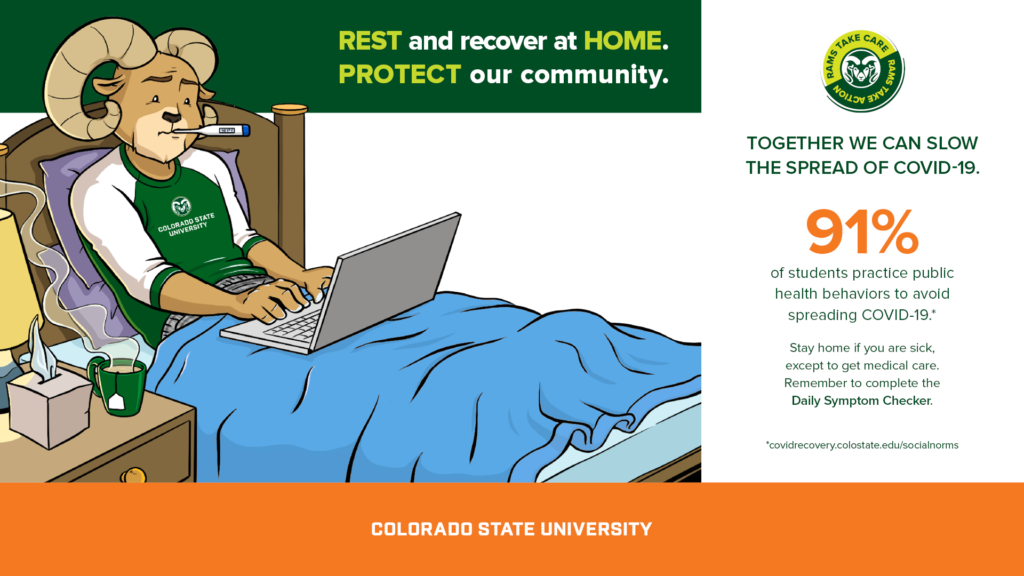
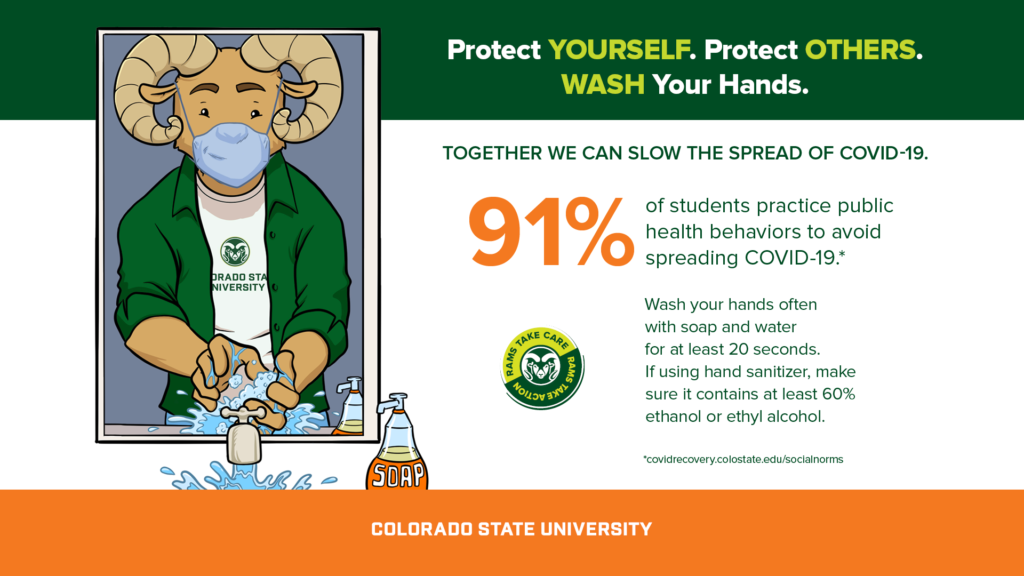
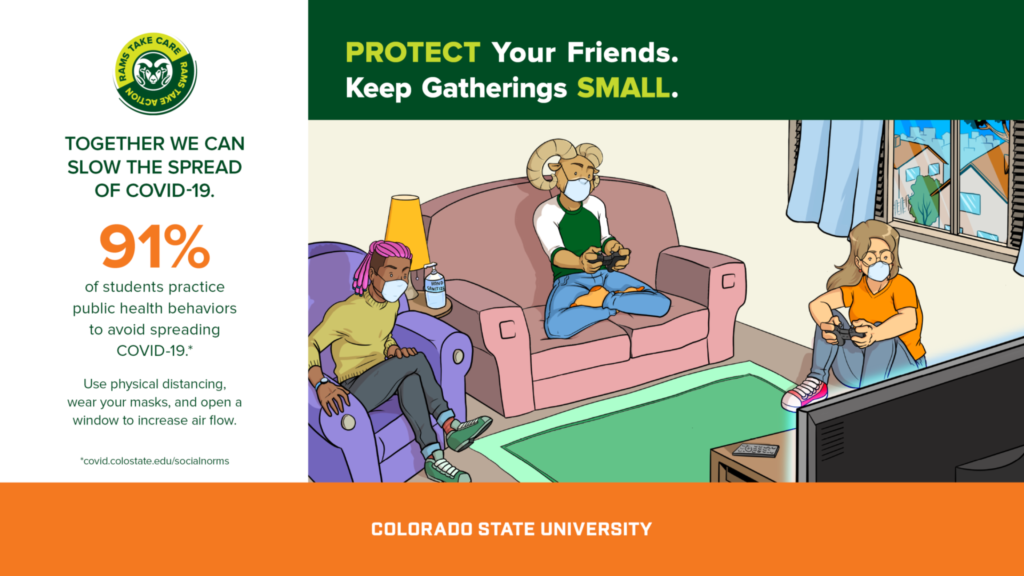
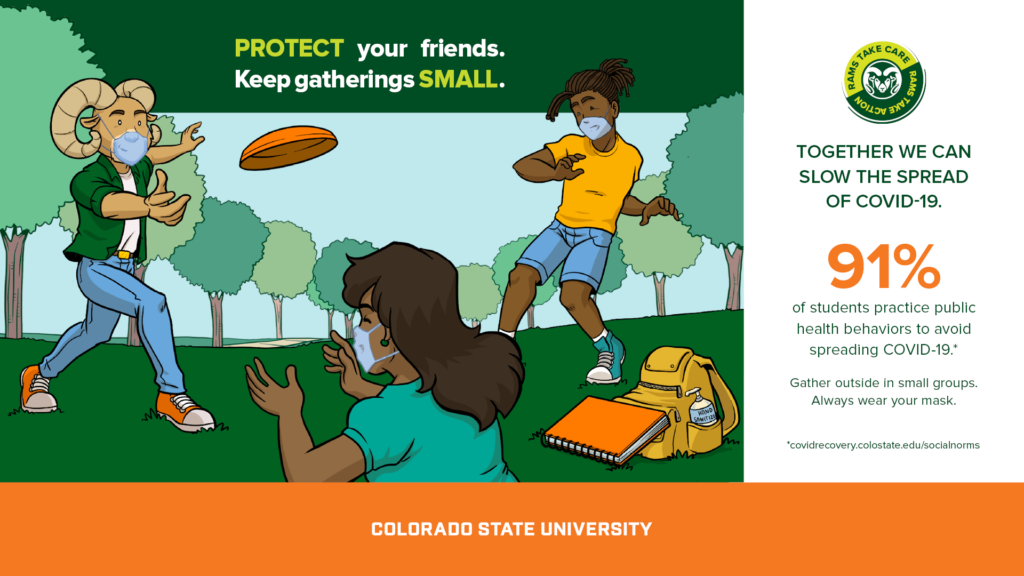
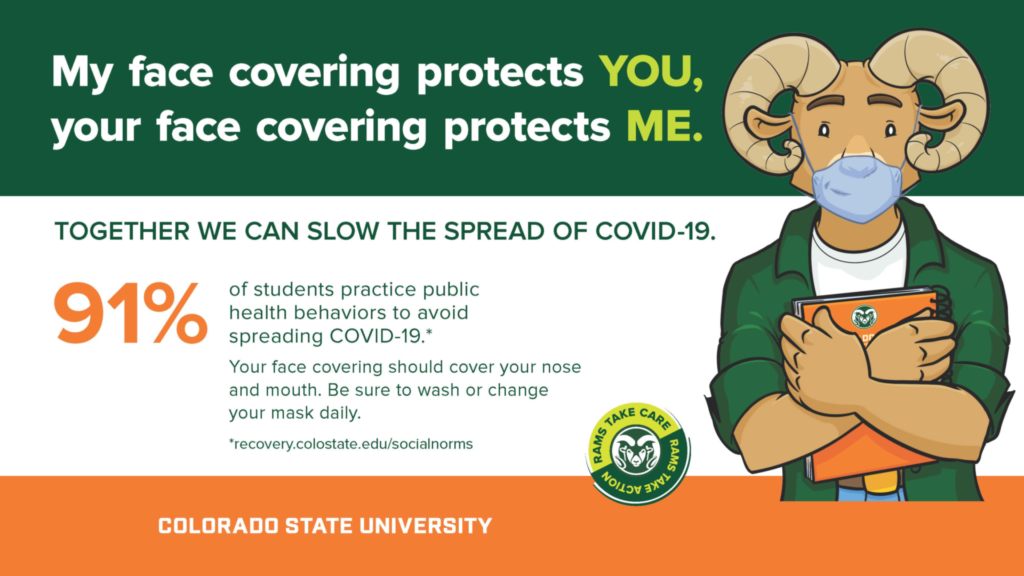
Throughout the semester, the Social Norming Task Force has produced a string of graphics displayed across campus and online to encourage public health behaviors.
The social norms marketing has featured CAM the Ram promoting face coverings, hand washing, small gatherings, and staying at home while sick, among other public health behaviors. The task force used a social norms marketing strategy to develop the campaign, relying on statistics from the July survey.
In the mid-semester survey, the task force found a majority of students had seen the social norms messages, with more than 90% of students seeing the initial face covering messages unveiled around Move-In Week.
Laura Giles, associate executive director of housing and dining services who co-leads the Social Norming Task Force with Donovan, expressed appreciation for the task force’s efforts throughout the semester. She also stressed the importance of using data to guide the strategy.
“Without these data points, we don’t have a foundation for the norming behaviors,” Giles said. “It’s really critical.”
Additionally, the task force hosted focus groups with students and faculty facilitated by Donovan and Elizabeth Williams, an associate professor in the Department of Communication Studies.
Donovan said faculty in the focus group were extremely positive about how students were following the behaviors in the classroom and on campus.
“Two faculty members who bike to campus, said they stop at Elizabeth Street to put their masks on before coming onto campus … out of peer pressure ‘because everyone wears a mask on campus,’” Donovan said in reference to the salience of the campaign’s messaging.
The Social Norming Task Force came out of the Student Life Recovery and Continuity Workgroup, one of the groups executing President Joyce McConnell’s COVID-19 recovery plan.
Workgroup members Karen Estlund, dean of Libraries, and Blanche Hughes, vice president for Student Affairs, led the charge for the task force.
Throughout the semester, the Social Norming Task Force has presented its findings and messaging across the campus to key constituencies.
Based on the support, the Social Norming Task Force will continue during the spring semester and continue to focus on the norming behaviors following public health guidance, with some new marketing strategies and imaging.